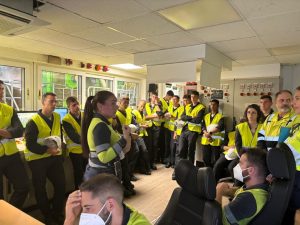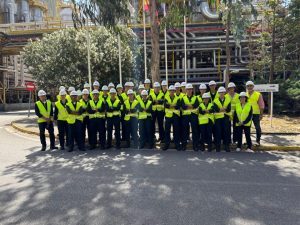
On July 2, 2025, the Ence factory in Pontevedra opened its doors to a group of 30 first-year students (1st Year Cadets, ASP1º) from the Bachelor’s Degree in Mechanical Engineering offered by the Defense University Center at the Spanish Naval Academy (CUD-ENM), accompanied by professors Mr. Jorge Feijoo Conde and Ms. Lorena González Gil.
Ence’s activity focuses on the production of eucalyptus pulp, the generation of renewable energy from agricultural and forestry biomass, and the management of land and forest crops.
The Ence factory, located in the Rías Baixas region, combines industrial activity with environmental sustainability principles. The plant is one of only two in Europe that produces paper pulp without using chlorine-based compounds in the process. The facility reuses a significant portion of materials at various stages of the production process. In addition, it uses by-products such as bark and lignin — which are not suitable for pulp production — to generate renewable energy.
The 1st Year Cadets (ASP1º) were welcomed by the heads of Supply and Operations, Mr. José Cainzos and Mr. Juan Gutiérrez, as well as by Ms. Ana de Salas Kearney, Head of Corporate Communication.
After the reception and welcome, the visit began with a talk on safety instructions, as well as a brief presentation of the company itself and the factory’s production process.
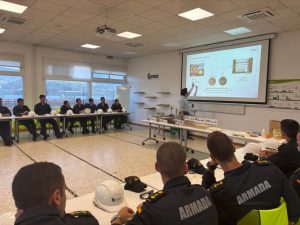
Afterwards, the ASP1º toured the different departments involved in the pulp production process, being received by the heads of each of them, who had the courtesy to explain in detail the different tasks performed in their department, as well as to answer the doubts raised by the students.
First, the students visited the wood yard, which is responsible for receiving and debarking and chipping eucalyptus logs.
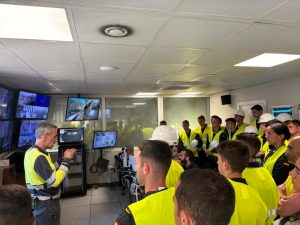
Subsequently, they visited the area responsible for carrying out the firing of the wood chips, as well as the washing and bleaching processes to obtain different types of cellulose pulp according to the desired final application. In this process, the importance of reusing all the process by-products, including the washing water and the water treated in the treatment plant, was emphasized in order to reduce consumption of the riverbed, a measure that is especially relevant in times of drought.
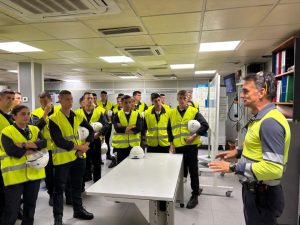
In addition to visiting the areas related to pulp production, the students were able to visit the power generation and chemical recovery area. On the one hand, they were able to see how, by burning the pre-concentrated lignin in boilers, the plant is able to generate practically all of its own electricity for self-supply. They were also made aware of the importance the company attaches to environmental commitment, since practically everything they generate is reintroduced at some stage of the production process, from the heat of the gas stream for the cooking digesters to the recovery of the chemical reagents needed to obtain the pulp.
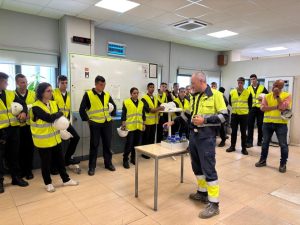
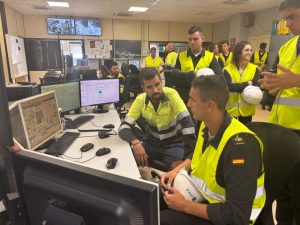
Finally, they were able to see how the pulp is pressed and dried for subsequent cutting and storage before being sent to the different customers.
